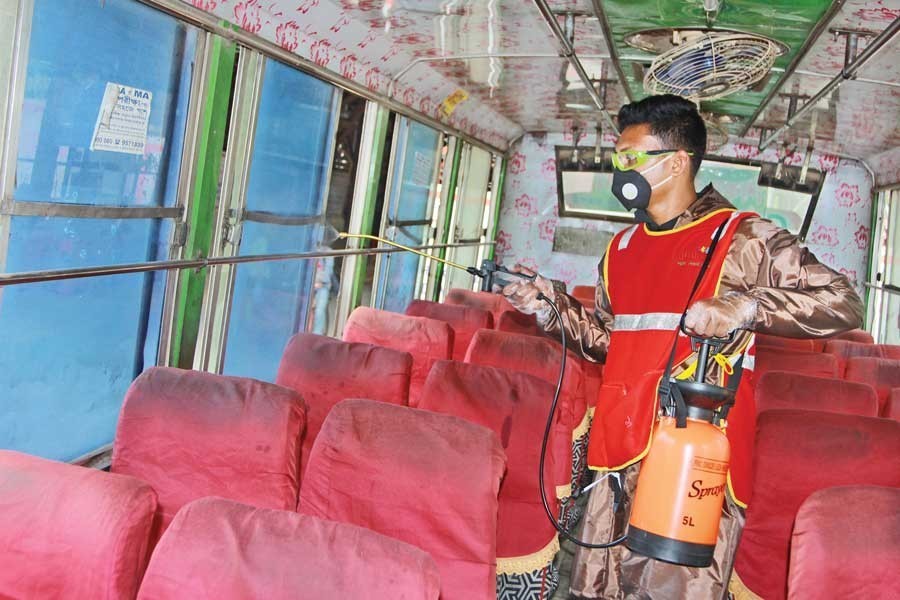The decision to resume services of public transports, including buses, trains and inland water vessels, as an effort to bring back normalcy in the country amidst the relentless rampage of coronavirus has sparked strong criticism from different quarters. Though the resumption of services is conditional, it becomes clear in the first week of June that there is very little compliance in this regard.
The transport minister made it clear that half of the seats of buses must be kept empty while plying on roads, commuters have to maintain a three-foot distance from each other; passengers, drivers, helpers, bus counter workers have to wear facemasks; and hand sanitisers, soaps and hand washing facilities must be available at all terminals.
Though sounds reasonable, the condition of keeping half of the seats empty reserves the provision with the bus owners and transport workers. The Bangladesh Road Transport Authority (BRTA) immediately recommended hike of bus fare by 80 per cent. Later the government approved 60 per cent hike which becomes effective from June 01. As in the previous cases, there is no strict monitoring of fare and in many cases bus owners are actually charging double the rate.
It is also difficult to comprehend how every commuter could be able to maintain three-foot distance in a minibus having narrow leg-space. A large number of buses in the public transport fleet are minibuses with limited and congested seats inside. Only in some long-route buses the distancing has been maintained.
The instruction to use hand sanitisers and keep hand washing facilities in bus terminals are also not followed properly. For intra-city or town-service, no bus terminals are actually there. Buses stop on roads without minimum infrastructure.
What is totally ignored is disinfecting the dirty and unhygienic buses. Almost all the public buses and minibuses are in a ramshackle condition with dents all over and broken front, rear and sides. Seats, floors, handles and other inside arrangements of buses and minibuses are very dirty as regular cleaning is totally missing, let alone disinfecting. Without disinfecting the buses regularly, hand sanitising and so-called physical distancing, prevention of the spread of the deadly disease is impossible. So, a through disinfection of public buses as well as other transports like CNG-driven auto-rickshaws is in order right now.
Petrol pumps and CNG refuelling stations may be used as disinfection points for public transports as well as other motor vehicles. In Indian capital territory Delhi, a similar move is underway. Necessary tools and disinfectors may be arranged at these points and services could be provided in exchange for nominal charges. The government may provide subsidies to keep the cost of disinfection tolerable.
In fact, all the ramshackle and dirty buses in Dhaka need to be replaced with better and decent buses to prevent the spread of community infection of coronavirus. This is, however, not possible at this stage as import of buses from China and India will take a longer time in absence of required policy to do so.
Nevertheless, Covid-19 exposes public health in the country's current public transport system to a greater risk and also brings an opportunity to address the issue more seriously by pressing into service decent buses.


